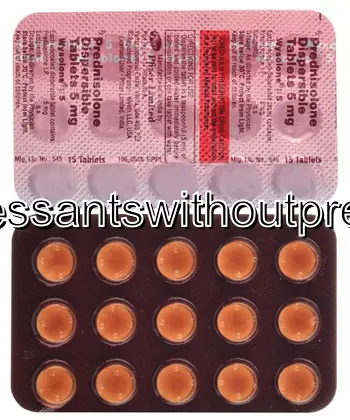| Package | Dosage | Price | Price per Dose | |
|---|---|---|---|---|
| Dosage: 2.5mg | ||||
| 180 pill | 2.5mg | €101.34 | €0.56 | |
| 120 pill | 2.5mg | €91.75 | €0.77 | |
| 90 pill | 2.5mg | €75.31 | €0.84 | |
| 60 pill | 2.5mg | €54.77 | €0.92 | |
| 30 pill | 2.5mg | €47.92 | €1.60 | |
| Dosage: 5mg | ||||
| 180 pill | 5mg | €105.44 | €0.59 | |
| 120 pill | 5mg | €87.64 | €0.73 | |
| 90 pill | 5mg | €75.31 | €0.84 | |
| 60 pill | 5mg | €56.14 | €0.93 | |
| 30 pill | 5mg | €46.55 | €1.55 | |
| Dosage: 10mg | ||||
| 180 pill | 10mg | €113.66 | €0.63 | |
| 120 pill | 10mg | €93.12 | €0.78 | |
| 90 pill | 10mg | €80.79 | €0.90 | |
| 60 pill | 10mg | €62.99 | €1.05 | |
| 30 pill | 10mg | €49.29 | €1.64 | |
| Dosage: 20mg | ||||
| 180 pill | 20mg | €116.40 | €0.64 | |
| 120 pill | 20mg | €97.23 | €0.81 | |
| 90 pill | 20mg | €84.90 | €0.95 | |
| 60 pill | 20mg | €67.10 | €1.12 | |
| 30 pill | 20mg | €52.03 | €1.74 | |
| Dosage: 40mg | ||||
| 180 pill | 40mg | €117.77 | €0.66 | |
| 120 pill | 40mg | €98.60 | €0.82 | |
| 90 pill | 40mg | €87.64 | €0.97 | |
| 60 pill | 40mg | €68.47 | €1.14 | |
| 30 pill | 40mg | €56.14 | €1.88 | |

Prednisolone Description
Introduction to Prednisolone
Prednisolone is a synthetic corticosteroid medication widely used to treat a variety of inflammatory and autoimmune conditions. It mimics the action of cortisol, a naturally occurring hormone produced by the adrenal glands. Due to its potent anti-inflammatory and immunosuppressive properties, prednisolone has become a mainstay in managing conditions such as allergies, asthma, rheumatoid arthritis, colitis, and certain skin disorders.
Mechanism of Action
The drug works by suppressing the immune response and reducing inflammation. It inhibits the production of inflammatory mediators like prostaglandins and leukotrienes. Additionally, prednisolone stabilizes cell membranes and decreases the leakage of substances that lead to swelling or tissue damage. This mechanism helps relieve symptoms such as swelling, redness, and pain associated with various diseases. The effectiveness of prednisolone depends on the dose and duration of therapy, tailored to each individual’s condition.
Uses and Applications
Prednisolone is prescribed for a broad spectrum of health issues. It is often used to control allergic reactions such as asthma attacks, severe skin allergies, and conjunctivitis. In autoimmune diseases like lupus and multiple sclerosis, prednisolone helps to reduce immune system activity that damages the body's own tissues. It also plays a crucial role in managing inflammatory conditions including inflammatory bowel disease, rheumatoid arthritis, and certain types of nephrotic syndrome. Sometimes, it is used as part of cancer therapy to manage inflammation and immune responses related to tumor growth or treatment side effects.
Administration and Dosage
The medication is usually available in oral tablets, liquid form, or injections. Dosage varies depending on the condition being treated, patient age, weight, and response to therapy. Medical professionals prescribe the lowest effective dose for the shortest possible duration to minimize side effects. It is important for patients to follow their healthcare provider's instructions carefully and not to stop taking prednisolone suddenly, as this can cause adrenal insufficiency. In some cases, gradual tapering is necessary when discontinuing the medication.
Review of Benefits
Many patients experience rapid relief from symptoms with prednisolone. Its anti-inflammatory properties can significantly improve quality of life for those suffering from chronic inflammatory diseases. Patients often report feeling more comfortable and less affected by their symptoms when using the medication as prescribed. Its versatility allows for use in a wide range of conditions, making it an invaluable tool in medical treatment. However, benefits are maximized when used under careful medical supervision to avoid potential risks.
Potential Side Effects
While prednisolone is highly effective, it can cause a variety of adverse effects, especially when used long-term or at high doses. Common side effects include increased appetite, weight gain, mood swings, sleep disturbances, and fluid retention. More serious risks involve osteoporosis, hypertension, elevated blood sugar levels, and increased susceptibility to infections. Patients on prolonged therapy should be regularly monitored by healthcare professionals to detect and manage side effects early. Tapering off the medication gradually helps reduce withdrawal symptoms and adrenal suppression.
Precautions and Considerations
It is important for patients to inform their healthcare provider about any existing health conditions, especially infections, diabetes, heart problems, or osteoporosis before beginning treatment. Pregnant and breastfeeding women should discuss the risks and benefits with their doctor. Prednisolone can interact with other medications, so a full list of current drugs should be shared with the prescribing healthcare provider. Careful monitoring is essential to adjust dosing and prevent complications associated with its use.
Final Thoughts
Prednisolone remains a vital medication in managing numerous inflammatory and autoimmune disorders. Its quick action and effectiveness make it a valuable therapeutic option. However, its potential side effects require careful use and medical supervision. When used correctly, prednisolone can significantly improve symptoms and support long-term health outcomes for many patients. As always, consultation with a healthcare professional is essential to determine the most appropriate treatment plan tailored to individual needs.
See Also
